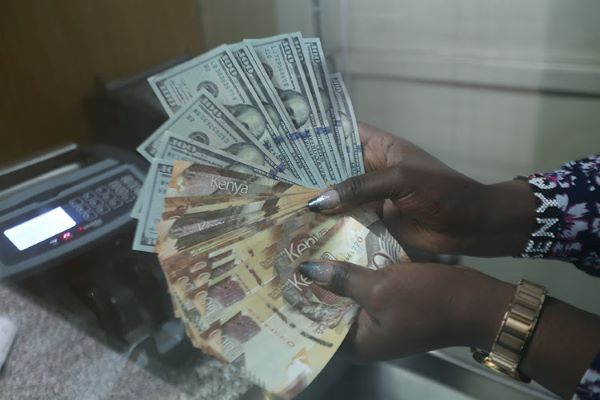| |||||||||
|
|||||||||
|
By:
ALFRED ONYANGO | |||||||||
| Posted:
Mar,18-2024 00:40:24
| |||||||||
| Kenyans working and living abroad sent home Sh3.58 billion less in February compared to the previous month which recorded the highest-ever remittance inflow in years. Data by the Central Bank of Kenya (CBK’s) weekly bulletin shows remittance inflows for the month amounted to $385.9 million (Sh52.2 billion), a 6.4 per cent decline from January’s record high of $412.4 million. Compared to the same period last year when inflows totaled $309.2 million (Sh41.8 billion), it is a 24.8 per cent increase. “The cumulative inflows for the 12 months to February 2024 totaled $4,330 million compared to $4,026 million in a similar period in 2023, an increase of 7.5 per cent,” CBK says in the bulletin. The US remained the largest source of remittances to Kenya, accounting for 54 per cent in the period under review. Although the apex bank did not give reasons for the decline, experts believe diaspora Kenyans could be cutting down on the amount sent home on the back of the depreciating dollar against the shilling. A weakening greenback against the local currency means receivers back home are not earning more in exchange as they used to be when the shilling was on a depreciating trend. This is concurred by Western Union’s inaugural Global Money Transfer Index which says about 67 per cent of Africans abroad send more money when the currency value falls in their receiving country, with 65 per cent of receivers agreeing that when currency values fall, they get more money. CBK on Friday quoted the shilling at 135.14, having gained about 25 units from the lows of 160 in January. It officially crossed the 160 mark on January 15, the lowest level on record, with the apex bank blaming depreciation on the $2 billion Eurobond pressure due in June 2024. However, the state last month paid back $1.5 billion of the debt, marking a successful settlement of the buyback plan hence boosting investor confidence. This was after the government successfully issued the $1.5 billion Eurobond for the buyback plan, with the National Treasury confirming in a statement that the issue was to fund the offer. The new loan is divided into three installments with a weight average life of six years and is expected to mature in 2031. Speaking last month in Naivasha during a four-day Cabinet retreat, President William Ruto lauded the successful buyback plan, saying it boosted the local currency hence the recent strengthening. “Investor confidence has been significantly enhanced, resulting in the appreciation of the shilling against the US dollar,” Ruto said. The good news for the shilling could also be pegged on the recent loans by the IMF and the Trade Development Bank (TDB) which have played a key role in cushioning the country's Forex reserves, easing the dollar pressure from importers. They wired an equivalent of Sh109 billion and $210 million (Sh33.7 billion), respectively. Remittance inflows for the month under review combined with the recently received loans however did little to support the country’s forex reserves which remained adequate at $6,974 million, just about 3.7 months of import cover as of March 14. It is a 0.8 per cent decrease in a month, from $7,031 million (3.8 months of import cover) recorded on February 15. CBK however maintained a brave face saying the level meets the statutory requirement to endeavor to maintain at least 4 months of import cover. | |||||||||
|
Source:
The Star
| |||||||||
|
||||||||||||||||||||||||||||||||||||||||||||||||||||||||||||||||||||||||||||||||||||||||||||||||||||||||||||||
|
||||||||||||||||||||||||||||||||||||||||||||||||||||||||||||||||||||||||||||||||||||||||||||||||||||||||||||||


.jpg)




